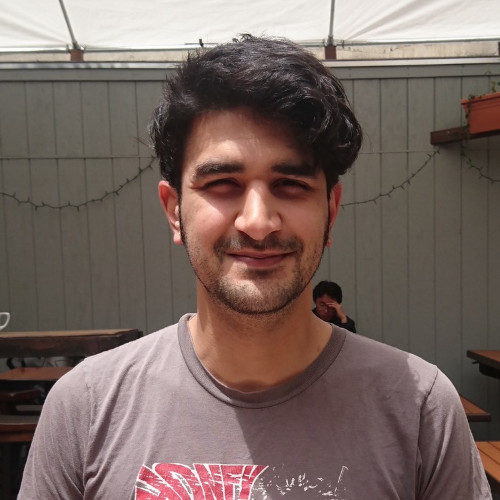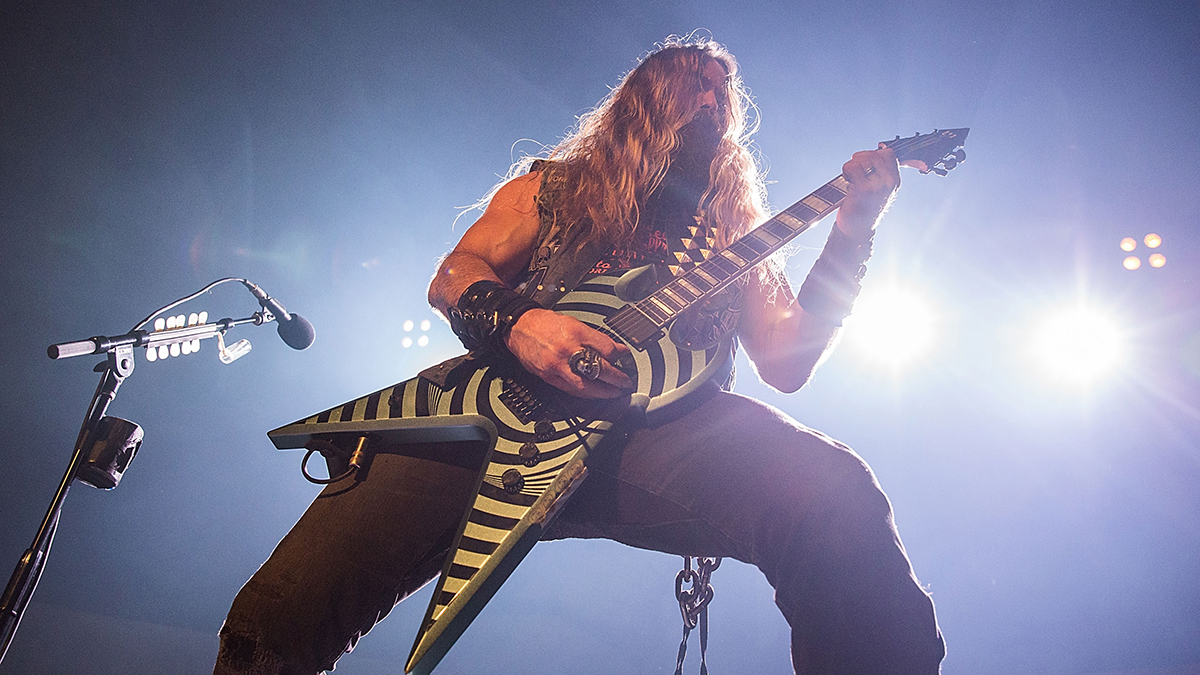Maybeshewill: “On this record, we tried to lean less heavily on powerchords for the energy and find other ways to employ the guitars”
Guitarists John Helps and Robin Southby talk writing their latest album, No Feeling is Final, via Skype and Dropbox, the gear that played into its creation and how Robert Smith helped them reunite five years after calling it quits
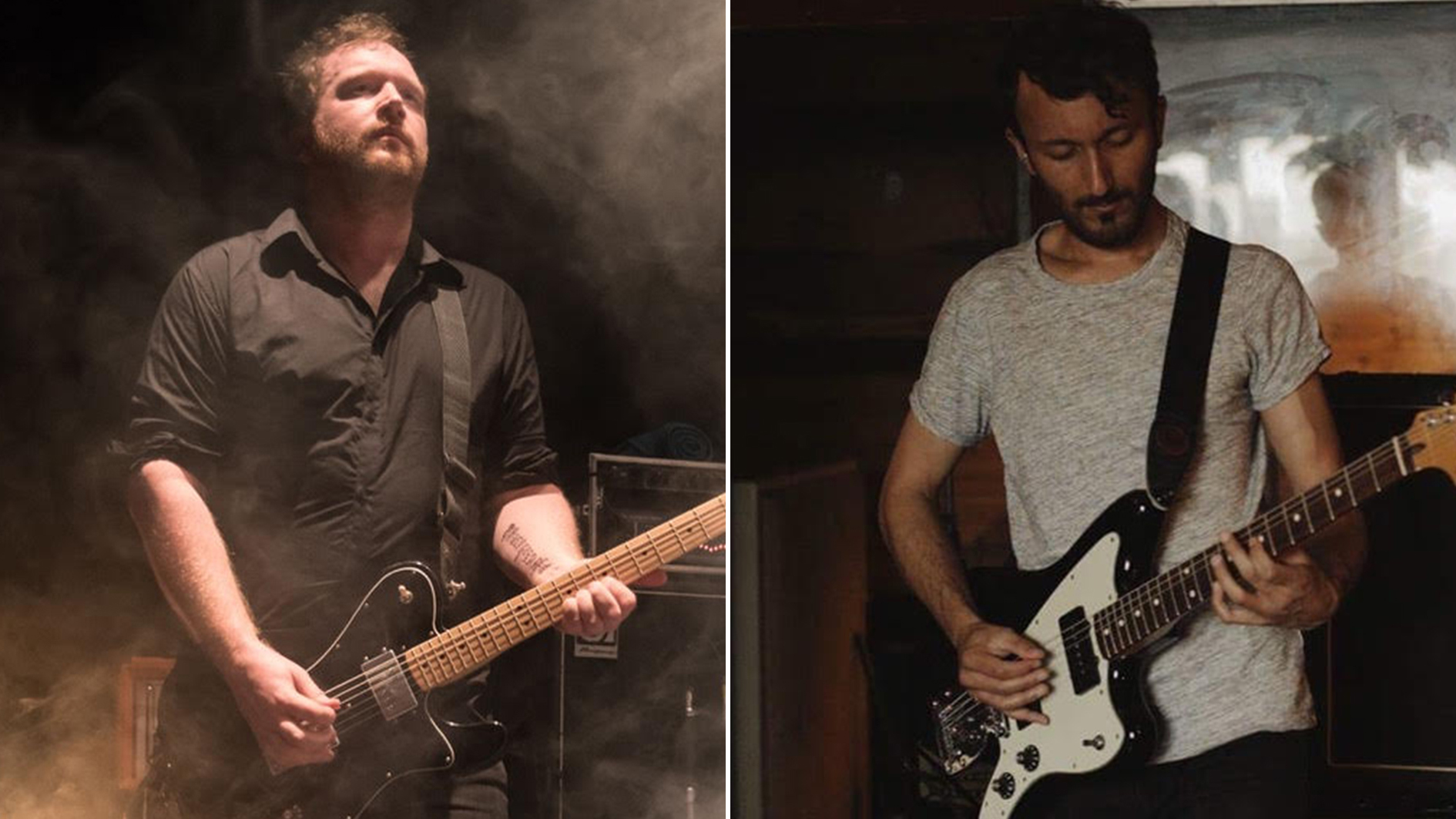
All the latest guitar news, interviews, lessons, reviews, deals and more, direct to your inbox!
You are now subscribed
Your newsletter sign-up was successful
In the mid-2000s, a string of critically acclaimed albums and relentless touring earned Maybeshewill a cult following.
On their early releases, the band mixed heavy guitars and electronics with elements of math-rock and post-rock. EPs like Japanese Spy Transcript established them as one of the most viscerally exciting bands on the UK instrumental scene.
Their first two albums, Not for Want of Trying and Sing The Word Hope in Four-Part Harmony, saw them expand and diversify their sound, bringing in orchestral and cinematic elements. On 2011's I Was Here For a Moment, Then I Was Gone, the band made their boldest statement yet. I Was Here... was a nearly pitch-perfect record that doubled down on their metallic influences.
By developing more sophisticated arrangements, and broadening their sound into adjacent genres, they elevated themselves past the crescendo-core trappings of the contemporary post-rock scene. As a result, they found themselves out on extended tours with experimental legends like And You Will Know Us By the Trail of Dead and The Dillinger Escape Plan.
But just as Maybeshewill seemed on the verge of bigger things, they called it a day after their fourth album, Fair Youth. To casual observers, it seemed like the band were hitting their stride, but a punishing schedule of albums and tours had left them burned out.
Now, five years later, Maybeshewill are back with a new album, appropriately named No Feeling Is Final. It's a defiant, militant record, as much a reflection of the band's return to form as it is a lightning rod for its subject matter, the ongoing climate crisis.
Guitar World picked up the phone to founding members John Helps and Robin Southby to find out more about their resurrection.
All the latest guitar news, interviews, lessons, reviews, deals and more, direct to your inbox!
For those that only got into the band after your breakup, what happened?
John Helps: “I think when you've been doing a band a long time, and touring as much as we were, even if there's no outside pressures to continue making music, you get into a bit of a cycle where it's kind of like feeding a machine. You're making a record, releasing it, touring it, and then going back into making another record again.
“That can feel quite relentless and restricting. We've never worked with any labels that had any expectation that we'd go straight from heavily touring an album into making another one, but we sort of put that pressure on ourselves. For a while it felt like there wasn't a way out of that. We'd tired ourselves out.”
Burnout seems like a pretty common reason for hiatuses and breakups. How did you all reconnect?
Helps: “Once you step away from it, you do sort of see that it is within your control to do things differently, and operate the band in a way that is workable for all five of us. After we had stopped the band for a while, Robert Smith from The Cure asked us to do his Meltdown Festival at the South Bank Centre. That felt like an opportunity we couldn't refuse and gave us an impetus to at least play one more show.”
There's going to be more of a selectiveness about what we do, in terms of commitments outside of the band. Everybody has various things they're involved with, plates they're spinning
Robin Southby
So that was kind of like a mini reunion?
Helps: “At the time we did that, we didn't have any intention of doing more than that one show, but it did initiate conversations. Then some members of the band started making music that felt like it could be Maybeshewill appropriate, so eventually, after a couple more years, they brought those songs to the rest of the band.
“Everyone was so excited about the new material... that it meant we spent 2020 and most of 2021 working on those songs – that would become the new record.”
What's changed about the dynamic of the band, this time around?
Robin Southby: “There's going to be more of a selectiveness about what we do, in terms of commitments outside of the band. Everybody has various things they're involved with, plates they're spinning. it's about being a bit more careful with our time and focussing our energies a bit to... [make] everything the best quality it can be.
“Like John said, when you're doing a band as a full-time thing, then maybe that quality control can slip a bit, or you get into a mindset of taking everything you can get, and just going with it.”
Helps: “Looking at some of the tours we did back around the time of I Was Here For A Moment... and Fair Youth, we were out for like – well, we'd do one headline tour that would run on for several months, and then also a support tour that year which would be a similar amount of time. It's wild to think we were doing that much touring together at that point, it was really quite intense.”
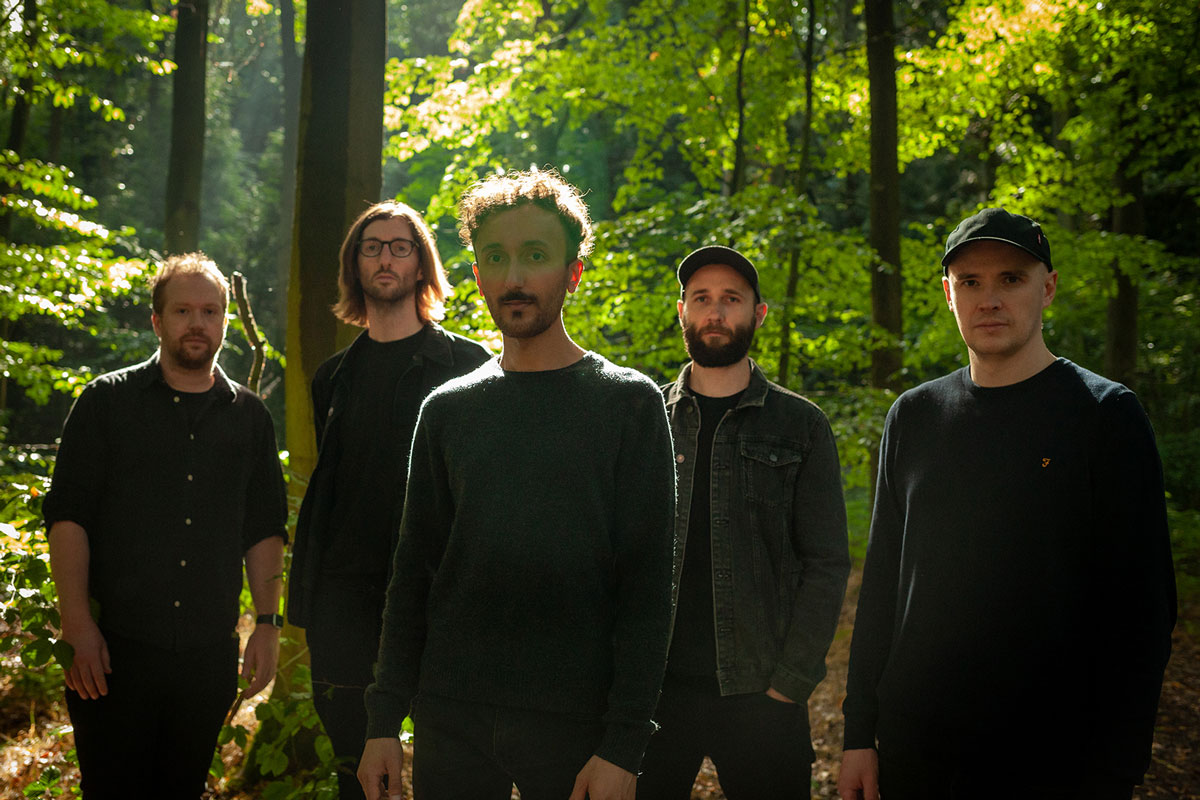
What was the writing process for No Feeling Is Final like? Were things mostly complete when they were pitched to the band, or did the ideas need a lot of work?
Southby: “It differed a little bit between the tracks, and there was a lot of material that didn't make it to the playing together stage. There are a few demos in various stages of completion that still exist, but that we didn't really develop. The majority of the ones that ended up on the record, I think, were for the most part written fairly completely, but as with all Maybeshewill stuff, everybody has an input on how things end up.”
What were the kind of changes that were made when the band worked together on the material?
Southby: “We did a lot of finessing, I guess, online. We had a Dropbox folder where we dumped a lot of ideas, updated versions of demos and stuff, because obviously this all happened during the pandemic. It wasn't possible to get together for a long time.
“A lot of it came together through online collaboration; we did some writing sessions where we all video called in and had a DAW up on somebody's screen and were writing – well, on a Skype call, basically.
The way that Maybeshewill has always kind of worked has been writing on a computer. [Music] is sequenced and fairly meticulously programmed in
Robin Southby
“So the ideas were definitely there, and then the sonics and the vibe of the collection of tracks was there. The real collaborative part was ironing things out, and developing some sections that were a bit lacklustre. Then, when we were finally able to meet up again, playing them through prior to recording, just to get a feel for how they worked and sort of, give them more of a human element.”
Listening to the album, it feels like maybe some tracks started on guitar, whereas others are more based on synths, or maybe more impressionistic sound sketches. Was this the case? On what instrument did ideas originate?
Southby: “It's interesting that you thought that some were guitar-based, because the way that Maybeshewill has always kind of worked has been writing on a computer. [Music] is sequenced and fairly meticulously programmed in, with the exception of a few tracks early on, which were jammed by people playing in a room.
“Some of the more heavy ones from the first two records were definitely like that. In the last three albums it's been writing on the computer, in a DAW, putting synths and programmed drums in as a sketch, before having it fleshed out and played [on record] by humans. This was no different in that all the sketches started on people's computers.”
Was there anything different in how you approached the guitars?
Helps: “We've been trying to move away from leaning too heavily on conventional powerchords for the energy on the record. Finding other ways to employ the guitars, where possible, that serves that purpose was pretty key across a lot of the tracks.
“There's some use of bowed guitars, which we have done in the past, but not in a significant way. I think we tracked that on three or four tracks, possibly, in various different places. For a couple of the really heavy parts we used bitcrushed sounds to create that really thick guitar sound from just a single-note performance.”
Speaking of, what kind of pedals were you using? Were there any new toys?
Southby: “We had a big array of pedals to play with. We pooled collections from various members of the band, as well as what was available at the studio that we tracked at. The idea was that the guitar would be almost a supporting element to the melodic focus, which was predominantly on the strings on this record.
“This meant the guitars were super-textural and bringing a sonic interest, rather than the focus being on just powerchords. There are a lot of lead lines that are played on guitar as well, but a lot of the more interesting guitars on the record, I think, are the ones like John said, bitcrushed, or huge delay and reverb chains, washed out stuff, stuff with pedals plugged in backwards or whatever. We experimented a lot with the sounds, and got some pretty wild tones.”
I play guitar, but I'm not a good guitarist, I'm extremely functional... I just like being around people that make music
John Helps
Helps: “There were a couple of pedals which became themes of the record, that we kept going back to. The Boss OD-3 [overdrive], that one for gritty tones, and then for louder stuff the Iron Horse by Walrus Audio. For reverbs and delays, the Walrus Audio Slö we were using loads. At one point, at the end of the console in the studio, there was a sea of pedals.”
Southby: “Every single part, we'd pull apart the pedal chain and try different things. Combinations of delays and reverbs, delays going into distortions for distorted tails, which gives it sort of a different, more saturated sound.”
And what did you lean on in terms of amps and guitars?
Helps: “We've got a Marshall JCM800 that I've had for about 15 years, that has been used on every Maybeshewill record. It's never been re-valved, and every time we go to it, it sounds good. I'm really worried that we're going to change the valves at some point and it's going to sound completely different. [We also used] a Marshall JVM410, which I know Jamie [Ward, bass and production] is a real fan of for the heavier drive tones.”
Southby: “We also used a JMP for cleans.”
Sounds like you're pretty heavy Marshall users.
Southby: “Yeah, Marshalls and predominantly Fender guitars. Most of the guitars were tracked on the Tele, weren't they, one of yours?”
Helps: “Yeah, a Fender Telecaster Deluxe. Just a Mexican one that seemed to hold tuning and it's got Wide Range humbuckers in it.”
Southby: “I had a Jazzmaster until relatively recently, when I sold it. We've kind of just gone with what we've had for a lot of the band's career. I have an SG, which I got around the time John got the JCM.”
What kind of SG is it? P-90s or humbuckers?
Southby: “It's humbuckers, it's not an old one or anything. I bought it around 2005, and it's from around that time. It's a Special, so it doesn't even have the fancy fret binding. It's knackered, it's beat to shit... but it has a particularly 'singing' quality for lead lines.
“I retired that for a few years while I had the Jazz. I kind of went back to it in the studio. It was really good for leads, but not so good for rhythm, because we play in drop C-sharp, and sometimes the tuning goes a bit funky on the lower strings when you're doing chords, and it just didn't really work for that. We also used a baritone on this record, which was a first for us. Just for one specific part [tuned to B].”
Music can say so much that you can't always convey through words, through standard human interaction
Robin Southby
Helps: “We borrowed it from our friend Charlotte Carpenter, who's a wicked musician up here. She lent it to us, we immediately changed the strings and it broke it, briefly. It was really awful to have borrowed somebody's pride and joy and then fucked it up in about half an hour.”
Southby: “Going from wound to flatwound.”
Ouch. What would you say is your philosophy behind the guitars you use?
Helps: “We don't really accumulate guitars – I don't think either of us have had often more than two or maybe three. They cycle through. We've used a Gibson 335 on a lot of previous [recordings], but that fell to the pandemic. We're not super-precious about instruments, I would say, either of us. I built a partscaster during the pandemic which was used for bits and pieces.”
Southby: “It's really a case of just trying to get together everything we have between us or can borrow, and then see what works for each part. We'll try every part on two or three different guitars, amps, pedal combinations, and it's Jamie's keen ear that decides on what works best.”
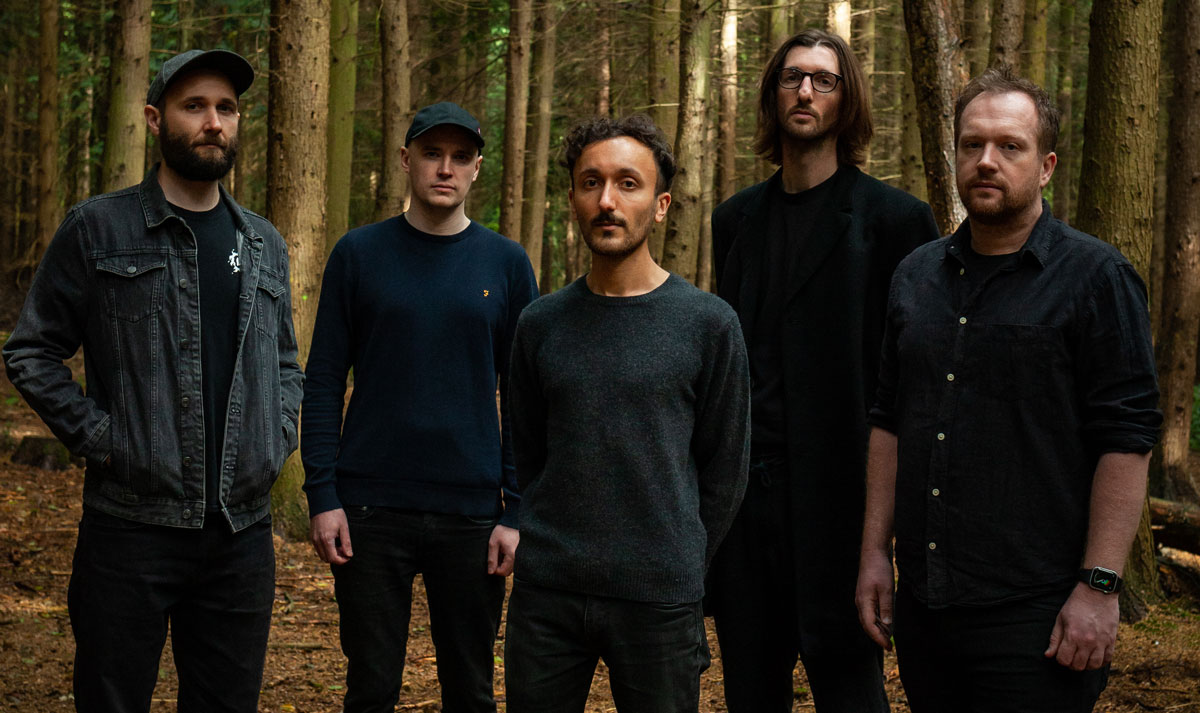
Final question, then. What do you love about music?
Helps: “I don't know. [long pause] It's good, isn't it? Everything I've done in my life in or out of the band for the last 15 years has been related to music... I never think of myself of a musician really, which is funny to say in a guitar interview.
“I play guitar, but I'm not a good guitarist, I'm extremely functional... I just like being around people that make music, and people that are passionate about music, so that has spread itself across my whole life. Why, is an interesting question.”
Southby: “For me, it's [sigh] a bit of a cliché, but music can say so much that you can't always convey through words, through standard human interaction. For me, it's an outlet for communicating with people that I'm not able to in person, or expressing ideas or feelings that I find it difficult to, face-to-face... I can't imagine not doing it. It's just a part of me and it's come to define how I see myself.”
- Maybeshewill's new album No Feeling is Final is out now via The Robot Needs Home Collective.
Alex Lynham is a gear obsessive who's been collecting and building modern and vintage equipment since he got his first Saturday job. Besides reviewing countless pedals for Total Guitar, he's written guides on how to build your first pedal, how to build a tube amp from a kit, and briefly went viral when he released a glitch delay pedal, the Atom Smasher.
